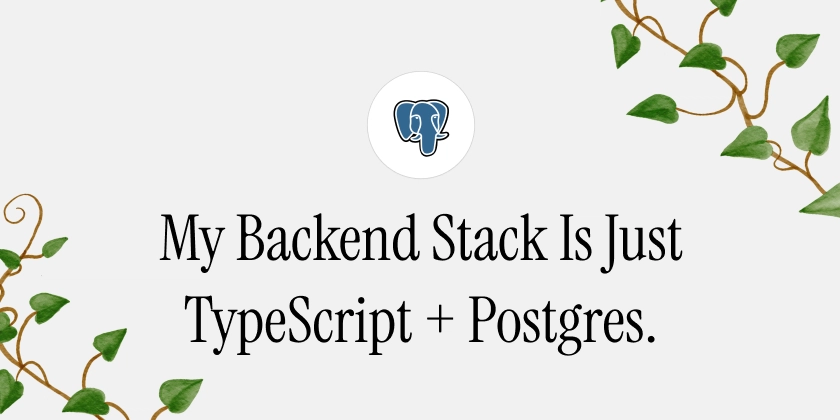Dev
1w
89

Image Credit: Dev
My Backend Stack Is Just TypeScript + Postgres. Here’s Why That’s Enough
- Using TypeScript and Postgres for backend development is often sufficient for many SaaS products, especially in the early stages.
- TypeScript provides a unified language for the entire stack, reducing context switching and facilitating type safety.
- Postgres serves as a robust and versatile database, supporting relational data, JSON storage, full-text search, and background job handling.
- Having fewer moving parts in the stack enhances focus, simplifies maintenance, and eases debugging.
- Keeping the software stack simple can lead to better scalability when necessary and prevents premature optimization.
- Overcomplicating the stack with unnecessary services can hinder development speed and create unnecessary complexity.
- For many applications, scaling concerns are often premature, and a straightforward stack can handle significant loads before optimizations are needed.
- A simple stack of TypeScript and Postgres allows for faster development, streamlined CI/CD processes, and reduced codebase complexity.
- While more complex tools may be needed for certain edge cases, TypeScript and Postgres can address many common backend requirements effectively.
- Starting with a minimalist stack like TypeScript and Postgres can enable faster progress, easier debugging, and more focused feature development.
- In conclusion, a simple and reliable stack like TypeScript and Postgres can often be more than adequate for building and scaling SaaS products efficiently.
Read Full Article
5 Likes
For uninterrupted reading, download the app